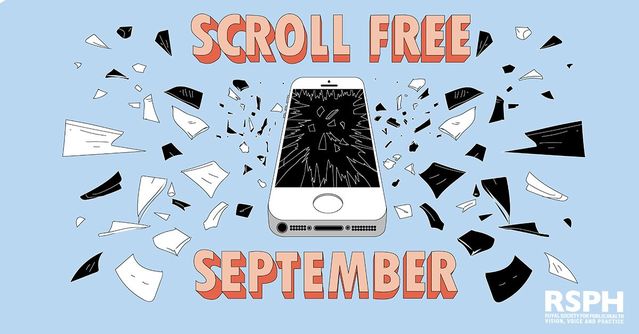Media
5 Ways to Join Scroll-Free September
How a new movement centered on social media indicates a public health concern.
Posted September 7, 2018
I was in the midst of my regular Instagram feed scroll less than a week ago, when a particular post caught my eye—the image below, posted by a colleague and communications professor:

As one who has been slowly shedding her Facebook accounts, tracking her screen time and trying to decrease time on social media, this naturally struck a chord. And as the author of an upcoming teen workbook on decreasing social media usage, it felt almost hypocritical not to join.
Started by Royal Public Health Society, Scroll-Free September is aimed toward users of Facebook, Twitter, Snapchat, and Instagram and just like it sounds, encourages users of all ages to stop scrolling for a full month. A challenge indeed not for the faint of heart. Anyone who has gone off social media or disabled accounts knows the void such a commitment leaves. Many times individuals will give up one form of social media only to delve further into another. However, entire days and weeks without social media quickly give rise to plentiful time to finally getting around to organizing that closet, finishing that book, and regaining your sanity.
Studies show that social media increases a host of mental health issues including depression, anxiety, insomnia, and low self-esteem. Many of us are very familiar with the idea of “Facebook depression” as stemming from scrolling and comparing your life to those of others that seem far more interesting and glamorous than yours. With expertly filtered images, it is easy for anyone to feel poorly about themselves after only a few minutes of scrolling. Not to mention staying up late, aimlessly looking at photos that ultimately only lead to misery. Meanwhile, one Danish study published in 2015 indicated that just one week off of Facebook was enough to significantly increase happiness levels among participants.
The aim toward going scroll-free is significant not only for adults, but also teens. The latest 2018 Pew study reports teens as being “constantly online” 45% of the time, with 95% of teens now reporting having or accessing a smartphone. As cyberbullying and social media fueled fights continue to escalate in the digital realm, taking some major steps backward is a critical step.
The Royal Public Health Society recommends several ways of getting involved with Scroll-Free September that don’t have to involve going cold turkey. They have several alternatives including:
- the social butterfly (not using social media during any social events such as at parties and while dining).
- the busy bee (refraining from social media use during work and school hours).
- the night owl (taking a break from all social media from 6 pm onward).
- the sleeping dog (not using any social media in the bedroom).
If you’ve ever toyed with the idea of changing your social media use in any form, consider visiting the official Scroll-Free September website here and don’t hesitate to join part way. Any time away from screens can make a huge impact in your mental health and well-being. Whether a butterfly or a bee, flap your wings and soar to new scroll-free landscapes.


